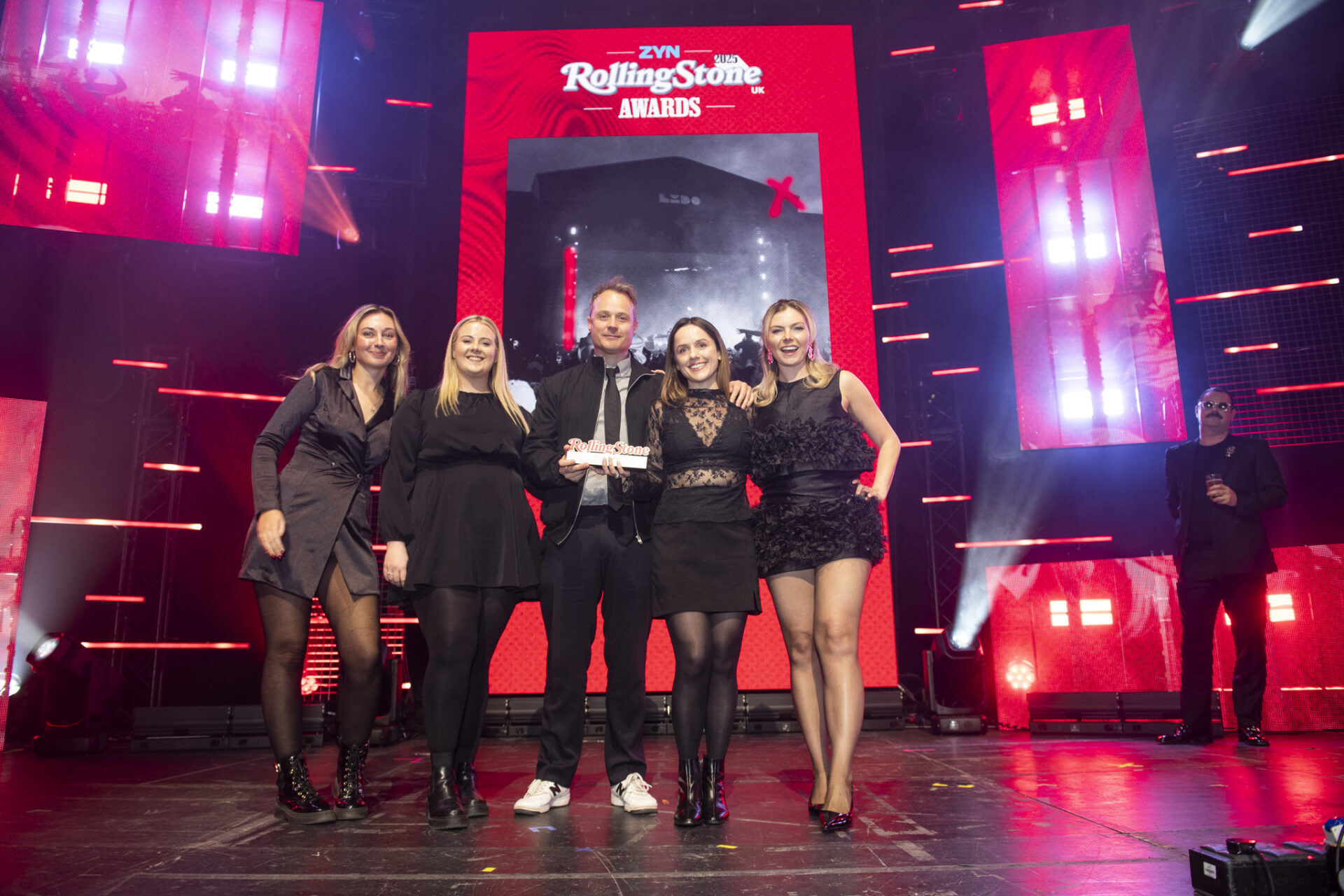ZYN Rolling Stone UK Awards 2025: How LIDO’s debut year won them The Festival Award
This new fixture on London’s festival calendar in 2025 had transgressive bookings and a green ethos at its heart. Festival boss Jim King looks back on its first year and forwards to the future

The London festival calendar is more congested than ever in 2025, but the emergence of LIDO back in June served as a breath of fresh air. Created by the team behind All Points East and with a home also in Hackney’s Victoria Park, its first year hosted day events headlined by Charli XCX, Massive Attack, Turnstile, Jamie xx and London Grammar.
At the core of LIDO is a green ethos and a desire to light the way for others by pursuing a sustainable festival calendar in the UK. With the first acts announced for 2026 and LIDO named winners of The Festival Award at the ZYN Rolling Stone UK Awards 2025, we speak to festival boss Jim King about the idea behind the festival’s creation, why going green is good for the bottom line as well as the planet, and where LIDO can go from here.
Tell us about the genesis of LIDO and what you wanted to do with the event.
All our events have a very clear narrative and something which both artists and fans can connect with. If we don’t stand for something, why should they come? The catalyst to why we wanted to launch in 2025 was the Act 1.5 show that we did with Massive Attack in Bristol. Their vision was to deliver the most sustainable festival that the UK had ever seen. We learned so much from that. AEG is a leader in sustainability anyway, but this set a different level and excited me about what the possibilities could be. We needed to grab that initiative and weave it into the identity that we wanted. I spoke to Massive Attack and said, “I really want you guys to treat this as you handing over the baton from the great work that you led on and we helped you. This should be your message to the industry about how we then continue on that great sustainability work that you’ve proven can be possible.”
Many think that making events greener and more eco-conscious is bad for the bottom line – can you explain why you disagree?
All the different people involved in putting on a festival have decisions to make. There’s a finite amount of money that we’re able to spend in delivering what we want to do from an artist side and from a production side. We just have to decide how we want to spend it. What we found is that there is no need for any com-promise on both sides. If you look into the other reasons for it, we can actually enhance the fan experience through being more sustainable. On average, most festivals will, on a good day, achieve 50 per cent recycling rate. We hit 90 per cent recycling rate on LIDO Festival. That’s a great number for us to hit in terms of our impact on the environment, but it also means that we’re collecting trash a lot quicker than we would normally be. We’ve all been to festivals where you’re knee-deep in rubbish, and it’s horrible. We think it’s acceptable to charge someone a large amount of money and they’re going to be OK with all that. A number of service delivery elements are actually improved through basic sustainability management. There’s a very, very strong business case as to why people should follow this guideline.
Your first year saw shows from Charli XCX and Jamie xx too – what do you offer to artists to mark you out from other events?
We don’t choose artists; they choose us. I wish that we chose the artists, but they have many, many choices. We just need to make sure that we are presenting ourselves and our event in the best possible light that connects emotionally as well as operationally. The misconception previously is that if you’re going to run a sustainable event, artists and fans have to compromise on the experience. Having done Act 1.5, we know that’s nonsense. If anything, by focusing in on this, you actually amplify and improve the fan experience, and you certainly don’t cut back on any of the artists’ production in any way.
How do you see LIDO changing in the future, and what did your first year teach you?
Our aim is to be able to offer headline opportunities for artists at different capacity levels. LIDO is 35,000, with All Points East at 50,000 and BST Hyde Park at 65,000. Just because an artist is selling 35,000 tickets, not 65,000, it doesn’t make them not a headliner – I’ve never bought into that. There are amazing artists at whatever stage of their career who are headliners, who have the repertoire, who have those hits, who have those songs that people want to listen to. They might not headline in Wembley Stadium, but their fans still want to see them in the context of a festival in an outdoor environment where they’re closing the event and have all the production. It’s three stages of music which are very closely curated with the headline artist. We want it to be a day of music which means something to the headliner. As their fans navigate their way around all of these stages, it’s the artist saying, “This music you’re listening to means something to me.” I think that’s a really important message that an artist can give to their fans, to come and see them [but also] things that inspire them or things that they love. That’s a very powerful and unique message which LIDO can offer fans and artists.
